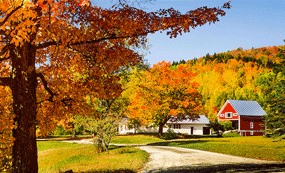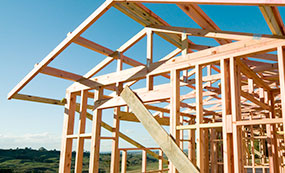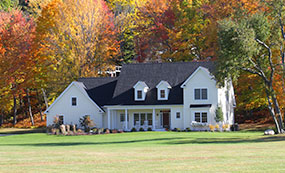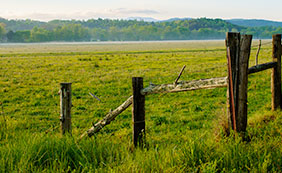Avoid the Pitfalls of Buying Rural Property
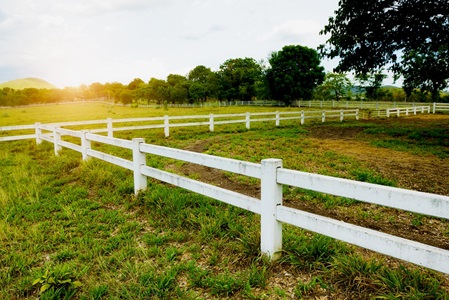
Water Sources
Private wells are the most common sources of water for rural properties. When looking at a property that has an existing well, determine the age, depth and type of the well. Older wells tend to be shallower and hand dug, these can be less reliable in dry years. Newer wells are drilled with casings, usually deeper and more reliable year to year. It’s also important to determine the water quality and test for contaminants with a water test.
Site Topography
Depending on the current weather conditions and time of year, some topography issues may not be as noticeable. Will water from excessive rain or snow melt accumulate around buildings or wells? Check the site topography for slopes that angle downhill and away from buildings and wells. Standing water around buildings can cause flooding as well as effect the integrity of foundations. Surface water tends to carry contaminants and debris that you do not want overflowing into your wells.
Soil Quality
The type of soil on a property can impact how well water drains and also whether or not a septic system will be able to drain properly. Even if there is a pre-existing system, have it tested to make sure it meets current standards. To determine soil quality, contact the local extension office or county environmental health department.
Zoning Laws
While some rural areas do not have zoning ordinances, it is important to determine if there is zoning in the area and what the property’s zoning is. Contact the town zoning officer to understand what is legally permitted use of the property and what uses are not allowed.
Easements
It is not uncommon to come across easements on rural properties. These can be right-of-ways for neighboring properties or even gas and electric company easements that allow them to run lines across the property as well as access the property for maintenance. Be sure to review the deed for any easements that may impact the use and privacy of the property.
Access
Speaking of right-of-way easements, if the property can only be accessed by another person's property, insure that the right-of-way is written into the other property’s deed. Otherwise access to the property could be taken away and severely limit the use of the property. In some rural areas with more dramatic slopes, you may have legal access from a public roadway but physical access may be challenging if it is a steep slope or bank.
Environmental Concerns
Depending on a property’s prior uses, it could be beneficial to look into environmental contaminations. This could be buried and leaking fuel tanks, or drums of chemicals left to rust and leak their contents. If you suspect environmental contamination on a property, a phase one environmental assessment can be completed to determine the extent of the contamination.
Outbuildings
Many rural properties will have barns or other outbuildings. Determining the condition of these buildings is important. Even if you intend to remove the structure, the costs to demolish can be affected by the location in relation to other buildings, power lines, trees etc. If you intend for the building to be maintained, be sure to check for structural soundness (foundation, roof and structural supports).
Utilities
Looking to build on a vacant rural property? Be sure to factor in the cost of running utilities to a new site. Running utilities to a new site can be costly, especially if the site is set back from the road a distance. Factoring in these costs can help you stay on budget for your total investment.
Neighboring Property Use
Many people buy rural properties in hopes of enjoying the country atmosphere, privacy and to get away from the noises of urban living. Whatever your reason may be in your search for rural property, always be sure to look at the uses of neighboring properties. Rural areas can include dumps, garbage transfer stations, commercial gravel pits, and many other rural commercial and industrial businesses that can impact surrounding properties.
Here’s a bonus tip! Get your financing in order from the get-go so that when you find your perfect property you can move forward quickly. Some banks have restrictions that can make financing rural properties challenging. Country Living from Farm Credit East specializes in financing rural homes and farms across the Northeast. Find your local rural mortgage specialist today.

